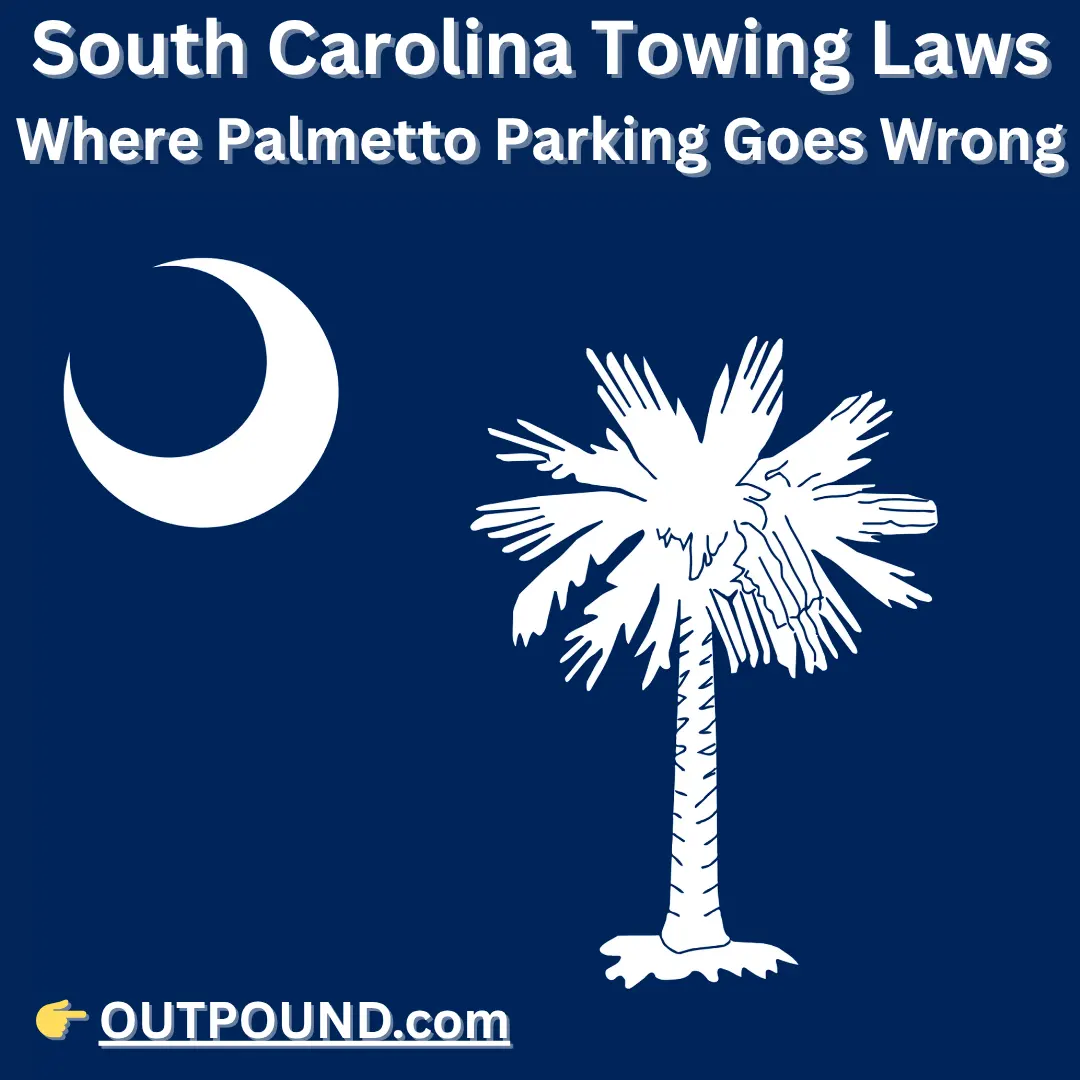Where Palmetto Parking Goes Wrong

South Carolina: home of beautiful beaches, Southern hospitality, and tow trucks that don’t care if you’re sipping sweet tea or stuck in traffic. From Charleston to Columbia, one small parking mistake can see your car whisked away faster than a shrimp boat at high tide. Between private lots, city streets, and complex municipal rules, South Carolina drivers quickly learn that “convenient parking” is a concept, not a guarantee.
Who Can Tow?
In South Carolina, towing companies must be licensed and insured. Authorized tows fall into three main categories:
1. Law enforcement – police can order a vehicle removed for illegal parking, abandonment, or hazard clearance.
2. Municipal authority – cities may authorize towing during street cleaning, snow emergencies (rare but possible in the Upstate), or special events.
3. Private property – property owners or management companies can request towing if vehicles violate posted rules.
Private property towing is especially common in apartment complexes, shopping centers, and tourist- heavy zones. The law requires proper signage, but “proper” can be anything from a giant neon sign to a tiny placard tucked behind a palm tree, easily missed until it’s too late. When Can They Tow?
Vehicles may be towed for:
- Blocking driveways, fire lanes, or handicap spaces
- Expired registration or license plates
- Abandoned or inoperable vehicles
- Violating private property parking rules
- Unpaid parking tickets or citations
In busy cities like Charleston, Greenville, or Columbia, towing can spike during festivals, downtown events, or on crowded beaches. Even a quick stop for groceries can turn into an impound nightmare if you misread a sign or park in the wrong color zone.
Notification Requirements
South Carolina law mandates that tow companies notify local law enforcement shortly after towing a vehicle. Police log the vehicle so owners can locate it. While this system is intended to protect owners, delays are common. Many drivers only realize their car is gone after checking multiple impound lots or receiving a surprise notice in the mail.
Fees and Storage
Base towing fees generally range $125–$200, with storage fees around $20–$35 per day. Additional charges—after-hours retrieval, mileage, administrative fees, or “special handling”—can appear unexpectedly. Urban areas and tourist destinations often have higher fees due to demand and limited lot space.
Vehicle Recovery
To reclaim your vehicle, South Carolina generally requires:
- Government-issued photo ID
- Proof of ownership (title or registration)
- Proof of insurance
- Payment for all fees
Cash is typically preferred, although some yards accept cards. Limited hours and paperwork errors can add extra days of storage fees. Even minor issues like leased vehicles under a corporate name can complicate retrieval.
Legal Recourse
Vehicle owners may dispute illegal or excessive tows in municipal court or small claims. Evidence such as photos, tow notices, and receipts improves your odds. Despite this legal path, most drivers pay first and argue later, because tow companies know the natural human instinct is to just get the car back.
South Carolina Vehicle Snatchers: Don’t Let Them Win
South Carolina’s towing system is structured, legal, and extremely efficient at testing patience. From municipal rules to private property regulations, fees can escalate quickly, and bureaucracy is abundant. OUTPOUND.com can help you locate your car, verify charges, and plan your recovery before your impound fees rival your beach vacation budget.
Because in South Carolina, parking wrong isn’t just inconvenient...it’s a full-time job.

